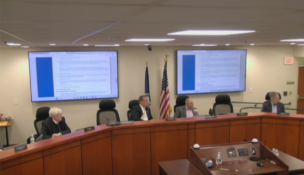McAuliffe proposes transportation reforms
Gov. Terry McAuliffe proposed Tuesday transportation legislation designed to better prioritize transportation spending in Virginia and prevent another debacle like the construction of a new U.S. 460.
The proposals would change the state’s transportation funding formula and change the way in which the state delivers projects under its Public-Private Transportation Act.
Virginia wasted $300 million in taxpayer money on U.S. 460, when contractors began design work on the road without having secured environmental permits. On Monday, Virginia and the U.S. Army Corps of Engineers announced they had reached agreement on a new alternative route for the 460 highway project.
“This legislation maximizes limited resources by providing the right funding structure to restore aging roads and bridges and make other critical improvements to Virginia’s transportation network,” Transportation Secretary Aubrey Layne said in a statement.
The legislative package, sponsored by Republican Del. S. Chris Jones, R-Newport News, and Del. Tom Rust, R-Herndon, includes the following proposals:
Highway formula changes
“Current highway funding formulas do not meet today’s needs,” McAuliffe said. “The outdated formulas result in a lack of funding for local needs, including replacing aging bridges and pavements. The bill greatly simplifies the myriad of rules governing the distribution of transportation funding, which will make funding more reliable and consistent.”
Changes to the formula
The bill provides a new transportation funding formula. Under the old system, funds were given directly to the localities, which made it difficult to use for big projects. Proposed changes include:
40 percent of the money would go to the rehabilitation of structurally deficient bridges and deteriorating pavement.
30 percent of funding would go to projects of statewide importance, which will be completed under House Bill Two (HB2). HB2, signed into law last year, requires the Commonwealth Transportation Board (CTB) to score projects based on an objective analysis. Once projects are scored, the CTB will then select projects for funding.
30 percent will go to a construction district grant program. Under this third category, localities will be able to compete for funds under a regional version of HB2, providing an incentive for localities to work together.
Additional support for transit capital projects
In total, changes will provide an additional $50 million annually for transit projects (based on fiscal year 2021). Funding will be shifted from the Rail Enhancement Fund, the Port and Aviation shares of the Transportation Trust Fund, as well as multiple highway funding sources.
Making CTB more independent
• The bill also removes the governor’s authority to terminate CTB members without cause in order to improve integrity and independence of the process.
P3 reforms
• Private partners would be required to disclose risk that is transferred to the commonwealth in P3 proposals.
• The transportation secretary will be accountable by signing a finding of public interest before a P3 deal is finalized, certifying that the risk transfer and all other findings are still valid. This would be designed to prevent situations like the U.S. 460 P3 deal, where procurement changed over the course of the project, yet no one was held accountable.
Representatives from the General Assembly would be on the P3 steering committee that determined whether or not a project should move ahead as a P3 project.
n


















